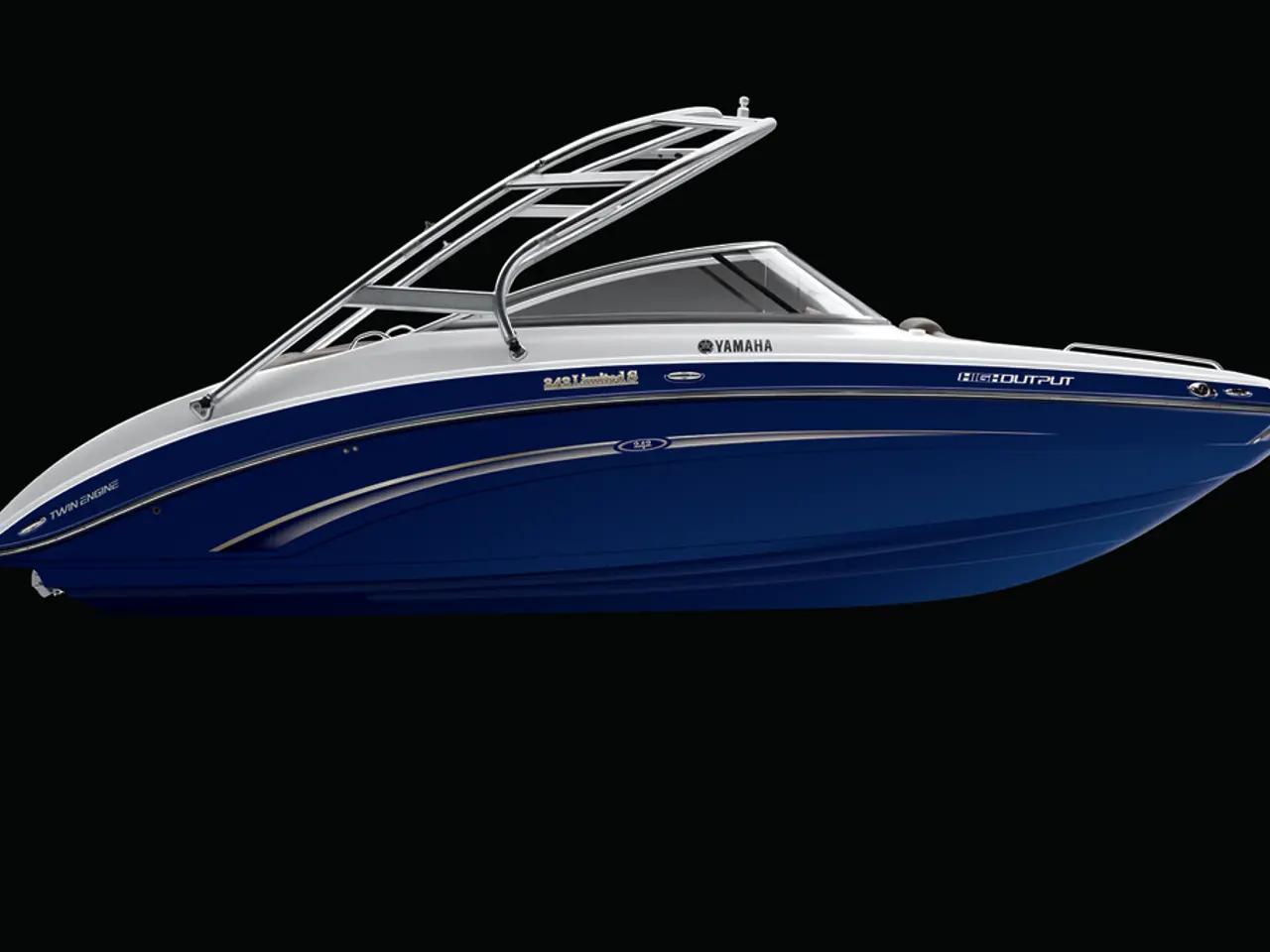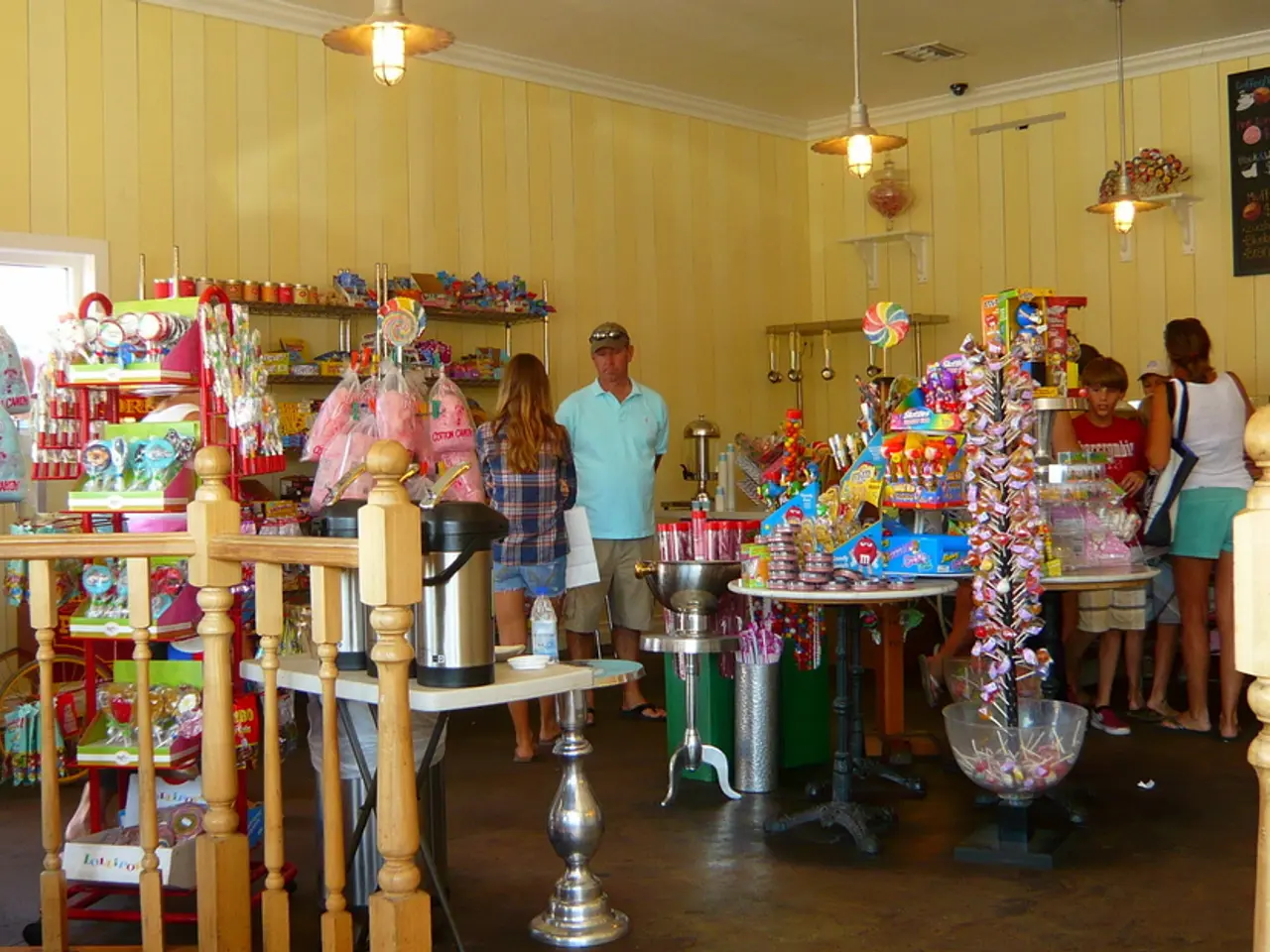Naming of the Third Hybrid Ferry by Hadag: Hybrid Vessel Nominated - Naming ceremony for the third hybrid-powered ferry by Hadag
The port of Hamburg, Germany, has welcomed its third hybrid ferry, Grasbrook, as part of a larger initiative to modernize and green its public ferry fleet. This 33.4-meter-long, 8.3-meter-wide vessel, built in 2025, marks a significant step towards sustainable urban transport in the city[1].
The hybrid nature of the Grasbrook ferry signifies its dual power source, combining traditional fuel and electric power, thereby reducing emissions and mitigating environmental impact. This transition aligns with Hadag's broader commitment to environmentally friendly transport options within Hamburg's public transit system[1].
Transport Senator Anjes Tjarks (Greens) emphasized the importance of this mobility transition, stating that the aim is to replace fossil fuels with environmentally friendly drives in the transport sector[2]. Hadag's operations, with their gradual shift towards greener drives, are an integral part of this initiative.
Hadag currently operates 28 ships, with the Grasbrook ferry joining its fleet. During embarkation and disembarkation, the Grasbrook ferry operates electrically, reducing emissions at key points in its journey[1]. The company's ferry lines and landing stages are strategically located along the Elbe and in the harbor, providing connections to various locations, including the iconic Elbphilharmonie[3].
The Elbphilharmonie, a cultural landmark, is among the locations serviced by Hadag's ferry lines and landing stages. The Grasbrook ferry, which reportedly began operation by the end of May, has already strengthened Hamburg's commitment to environmentally friendly public transport options in the Elbe River and harbor area[4].
While the exact cost of the Grasbrook ferry remains undisclosed, hybrid ferries often involve higher initial investments due to advanced propulsion systems. However, these costs are offset by environmental and operational benefits over time.
The introduction of the Grasbrook ferry sets a benchmark for future maritime transit innovations, demonstrating Hamburg's dedication to sustainable urban transport. With the city's continued focus on green technology, it is clear that the future of Hamburg's public ferries is firmly rooted in sustainability and energy efficiency.
[1] Hadag Press Release, 2025 [2] Statement by Transport Senator Anjes Tjarks (Greens), 2025 [3] Hadag Operations Map, 2025 [4] Hamburg City Council Press Release, 2025
- The new environmental-science and innovative approach to energy efficiency, as demonstrated by the Grasbrook ferry, aligns with the science-based policies of the city and the industry's pursuit for sustainable solutions.
- Given the city's commitment to reducing emissions and promoting environmental-science within the transportation sector, the finance sector may also see increased investments in green technologies, such as the automotive industry's development of electric vehicles.
- This dedication to greener employment policies can potentially attract more expertise in the fields of science, engineering, and finance, further strengthening the city's industry and improving its overall sustainability stance.




